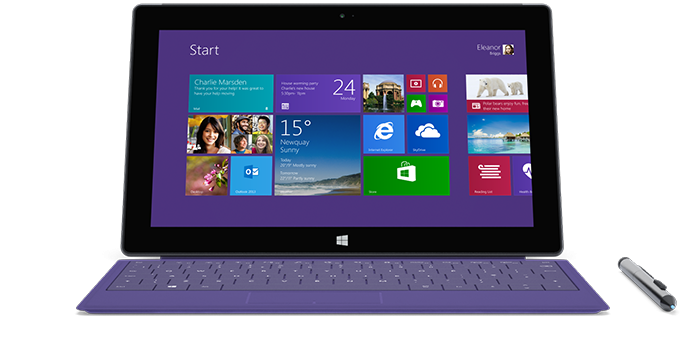Microsoft has given the strongest indication yet that it might be ready to abandon Windows RT, at least in its current form, claiming that having three versions of Windows, including Windows Phone, is confusing consumers.
Windows RT is the version of Windows 8 created for the ARM-based chips which are found in virtually all smartphones and tablets. It was created in the belief that there was a clear demand for a simplified operating system that still offered key PC functions such as Microsoft Office, to run on tablets such as the ARM-based Microsoft Surface RT.
with Windows Phone, this means there are three versions of Windows, Julie Larson-Green, executive vice-president of Devices and Studios at Microsoft, told a UBS seminar, something she said was unlikely to continue, suggesting it was a mistake to use Windows branding for Windows RT.
RIP Windows RT?
 “The goal was to deliver two kinds of experiences into the market, the full power of your Windows PC, and the simplicity of a tablet experience that can also be productive,” she said. “I think we didn’t explain that super-well. I think we didn’t differentiate the devices well enough. They looked similar. Using them is similar. It just didn’t do everything that you expected Windows to do.
“The goal was to deliver two kinds of experiences into the market, the full power of your Windows PC, and the simplicity of a tablet experience that can also be productive,” she said. “I think we didn’t explain that super-well. I think we didn’t differentiate the devices well enough. They looked similar. Using them is similar. It just didn’t do everything that you expected Windows to do.
“So there’s been a lot of talk about it should have been a rebranding. We should not have called it Windows. How should we have made it more differentiated? I think over time you’ll see us continue to differentiate it more.
“We have the Windows Phone OS. We have Windows RT and we have full Windows. We’re not going to have three.”
Should Microsoft retire Windows RT, it would hardly come as a surprise to users who have complained about a lack of flexibility and lack of software for the platform, which can only run applications from the Windows Store.
Analysts have criticised Microsoft’s inability to communicate the advantages of Windows RT, such as improved battery life and cheaper device cost, while its partners have abandoned or scaled back plans to launch tablets using the platform following the launch of the Microsoft Surface.
Do you know about Windows? Try our history quiz!





